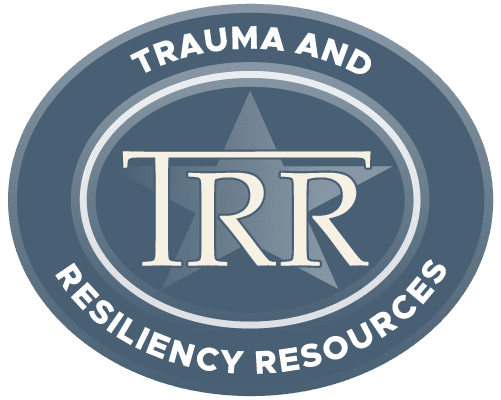Our Mission is to end Military Suicides
Trauma and Resiliency Resources, Inc. (TRR) assists military veterans and first responders challenged by service-related and line-of-duty traumatic experiences. We do this by connecting them with trauma-related resources, including therapists with advanced training in this area. TRR’s Warrior Camp® program, specifically for active military and combat Veterans of all eras, is designed to heal the trauma of war and Military Moral Injury©, prevent suicide, enhance resilience and support force preservation.
Our services include:
- Multi-faceted trauma intervention and on-going support services to individuals who have experienced severe stress or trauma as a result of line of duty responsibilities, including, but not limited to: uniformed and non-uniformed workers who responded to the World Trade Center attacks, military service personnel returning from duty, uniformed workers responding to emergencies in the routine execution of their job responsibilities, and the families of all of the above;
- Outreach, information and resources to impacted individuals and their families;
- Information and guidance to clinicians working with these individuals;
- Referrals to follow-up services when necessary. TRR is dedicated to assisting traumatized individuals connect with trauma-related resources, including therapists with advanced training in this area.
About Trr
Warriors and First Responders put their lives on the line every day in service to their country, whether on the home front or in a combat zone. They do this willingly. They do not expect to be internally disturbed in the process, yet, this often occurs, and then it is time for us to serve them.
That time is now.
Active duty suicides have outpaced deaths in combat and are now happening at the rate of one per day. Veteran suicides are occurring at the rate of 22 per day. TRR is dedicated to helping those who have been to war truly come home.

Organizational History
Incorporated in 2005, Trauma and Resiliency Resources, Inc. (TRR) is dedicated to assisting traumatized individuals, especially those impacted by line of duty responsibilities, connect with trauma resources including therapists with advanced training in treating first responder and warrior trauma. TRR* was born out of its Founder’s work with uniformed and non-uniformed New York City First Responders in the aftermath of the events of September 11, 2001.
501(c)(3) public charity status was awarded in 2006. TRR’s first website was designed by a retired firefighter so that trauma-related resources could be made available to members of FDNY, NYPD and PAPD (Port Authority Police Department of New York/New Jersey) and their families.
With the onset of the wars in Afghanistan and Iraq, these resources were expanded to Military Personnel – Active Duty and Veterans, and all their families. Because we have no paid staff more than 90% of all donations go directly to Warrior Camp® programs. The remaining 10% pays for operational costs such as website hosting/ maintenance, grant writing/program development, and fundraising.
Trauma is Treatable
Based on extensive experience we know that warriors and first responders believe they are supposed to “suck it up” and “get over” traumatic experiences on their own. This is usually reinforced by their departments or branch of service. As traumatized individuals try to handle their difficulties on their own, years go by. When they finally do seek professional help, or are mandated to get help, it is often very late. Their symptoms have become chronic and complicated by the use of drugs and alcohol in a typical, but largely unsuccessful, effort to reduce symptom severity.
Research-based treatment
Traumatic stress has been heavily research funded in recent years, and we now know much more about what actually happens to individuals during a traumatic experience. Some of the specific brain processes involved in the formation of symptoms have been identified. This has lead to the development of treatment modalities that are highly successful for many people as long as the treatments are provided by therapists who are trained and/or certified in their use, and are sufficiently educated about working with trauma survivors.
Those of us who work with traumatized individuals know that recent traumas are often fueled or exacerbated by traumatic experiences from childhood that at the time were probably unrecognized as such. Good trauma treatment can address these issues when necessary, and if that is what the individual wants.
Combat Trauma:
PTSD AND Military MORAL INJURY©
Untreated Combat Trauma increases the risk of suicide. Don’t wait until it is too late – help is ALWAYS available. While it is true that most people exposed to traumatic events get over this experience on their own, when people are very close to what happened, physically and psychologically, the effects can be more long lasting, ESPECIALLY when they have been exposed, repeatedly, to multiple traumatic events without time to rest, as occurs down range.
Being in a continuous state of hyper arousal makes it very difficult, because of brain chemistry, for these disturbing thoughts and feelings to recede. If this is YOU – and you think what you are experiencing is getting more severe, or your friends or family members are concerned about you, or you are self-medicating with alcohol or other substances, call one of the phone numbers listed on the Crisis Lines page to get some help – before things get worse!
If you are thinking about or worried about harming yourself or someone else call 911, or ask a supportive family member or friend for immediate help.
Combat Trauma
- Anger
- Rage
- Guilt (over killing)
- Guilt (over not doing enough/failing to save someone)
- Betrayal (because of real or perceived command failure)
- Grief, guilt over loss of fellow warriors
- Combat-related flashbacks
- Combat-related dissociation
- Exaggerated startle response
Events most likely to result in Combat Trauma:
- Being attacked or ambushed
- Receiving incoming rocket or mortar fire
- Being shot at
- Being responsible for the death of an enemy combatant or civilian
- Seeing or handling seriously injured fellow warriors or their remains
- Being on “bagging” duty
- Being on clean-up duty
- Being injured
- Being separated from ones unit
Principal causes of Combat Trauma:
- Life-threat trauma
- Traumatic loss
- Military Moral Injury©
Behavioral manifestations of Combat Trauma:
- Abuse of alcohol or other substances
- Engaging in high-risk, potentially lethal activities
- Misconduct
- Domestic violence
- Criminality
- Suicide
Common symptoms of PTSD
- Sleep difficulties and constant fatigue
- Difficulty concentrating, remembering, thinking, making decisions
- Depression
- Anxiety
- Withdrawal from social activities and friends
- Problems at home
- An increase in accidents
- An increase in taking unnecessary risks
- Physical complaints and medical illness or fear of medical illness
- A significant increase in the use of alcohol and other substances
Military Moral Injury©
- Difficulty connecting
- Feelings of being unworthy
- Feelings of not deserving contact
- Intense shame or guilt
- Self punishment
- Suicidal ideation and attempts
Client's Rights
- The right to ask questions about the qualifications and experience of your counselor/therapist.
- The right to ask questions about any procedures used in treatment. If you wish, your counselor/therapist should be happy to discuss his/her usual procedures and philosophy of treatment
- The right to refuse a particular treatment method. Your counselor/therapist may feel that a particular treatment method is essential to your therapy, and this must be resolved to your mutual satisfaction.
- The right to ask your counselor/therapist to discuss your progress and future counseling plans with you at any time.
- The right to have any testing results explained and discussed with you. You also have the right to refuse testing, but your counselor/therapist may feel that this is essential to your progress. This must be resolved to your mutual satisfaction.
- The right to request referral to another counselor/therapist, or agency.
- Discuss this with your counselor/therapist if you are comfortable doing so.
- The right to terminate therapy at any time. Since termination is an important part of the therapy process, it will be helpful to you to inform your counselor/therapist that you wish to terminate and to discuss your reasons for doing so.
- The right to be respected as a human being; to have your therapist convey this respect by keeping your appointments or letting you know ahead of time if a schedule change is necessary; by returning your phone calls; by giving his/her complete attention during sessions; and by providing you with the most effective therapy he/she can.
- The right to ask questions about anything related to your treatment and to expect an honest discussion of your concerns.
(Adapted from the Washington State Dept. of Education)
Staff
Board of Directors
ADVISORY BOARD
Janina Fisher, Ph.D.
Jason Foscolo
Farm Team
Adam Lasek
Builder




